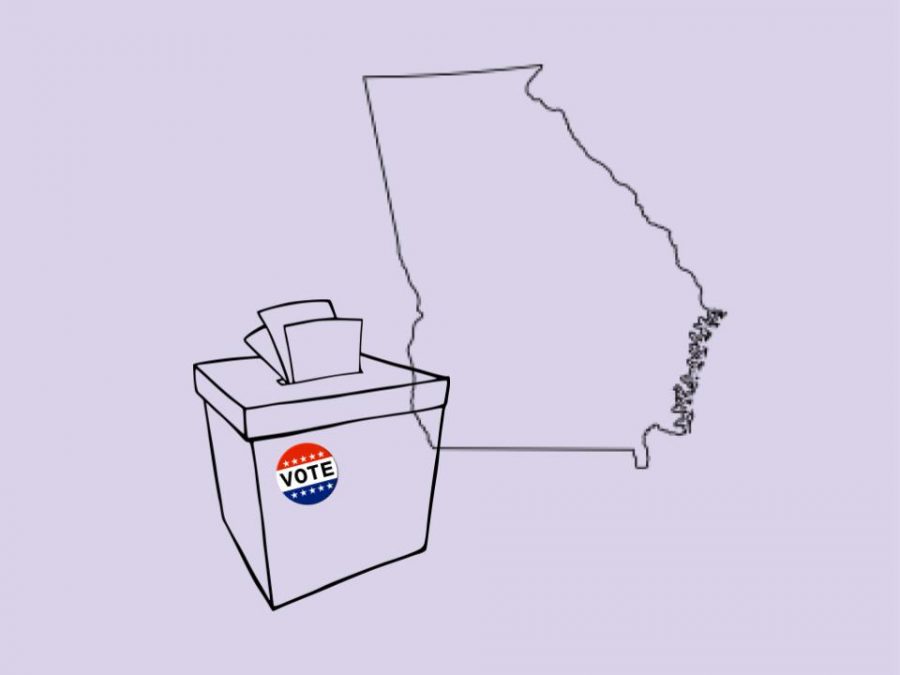What’s the Deal with the Georgia Runoffs?
The upcoming Georgia runoff elections have Democrats and Republicans competing for control of the Senate.
January 4, 2021
Tuesday, January 5 is the last day for Georgians to vote in two monumental runoff elections.
What exactly is a runoff election?
The boundaries for what constitutes the need for a runoff election vary across different states (many states don’t even have runoff elections), but in Georgia, a runoff election occurs if none of the candidates receive at least 50% of the votes in a general election. When that happens, the two candidates who received the most votes compete in a second election—this is the runoff.
Whichever candidate earns the most votes in the runoff wins.
In Georgia, runoff elections may apply to congressional, as well as state executive or legislative races. In the case of the upcoming election, Democrats and Republicans are competing for seats in the United States Senate.
The two seats up for grabs in this election are especially significant, as their winners will determine which party has the majority in the Senate.
Why does having the Senate majority matter?
The general election results have decided that there will be 48 senators in the Democratic conference and 50 in the Republican conference. With two remaining seats on the line, Democrats would have to win both runoff races in order to achieve a 50-50 tie in the Senate. If that happens, Vice-President-Elect Kamala Harris would become the tie-breaking vote, handing the Senate majority to the Democrats. If either of the two races are picked up by a Republican candidate, however, the Republican party would maintain their control of the Senate.
Both parties would benefit from a Senate majority. In order for legislation to make it to the president’s desk, a bill must pass with a majority of votes in both the House and the Senate.
Therefore, President-Elect Joe Biden may have a greater chance of passing desired legislation if his party gains control of the Senate, as that would give Democrats control of both chambers of Congress on top of the presidency. Conversely, Republicans would be in a better position to combat the Democrats’ agenda if they maintained control of the Senate.
What are some other important details about the Georgia runoffs?
Under normal circumstances, both of a state’s senators wouldn’t be up for re-election at the same time. Right now in Georgia, though, a special election is being held due to the resignation of Senator Johnny Isakson. After the resignation, Georgia Governor Brian Kemp appointed incumbent Republican Senator Kelly Loeffler to fill Isakson’s seat until the election, during which she ran and advanced to the runoff against Democratic candidate Reverend Raphael Warnock.
The other race is between Republican Senator David Perdue and Democratic candidate Jon Ossoff.
If the runoff election follows the trend of Election Night/Week 2020, winners may not be projected on the night of January 5, which doesn’t indicate fraud; it just shows that all legal votes are being properly processed and counted.






